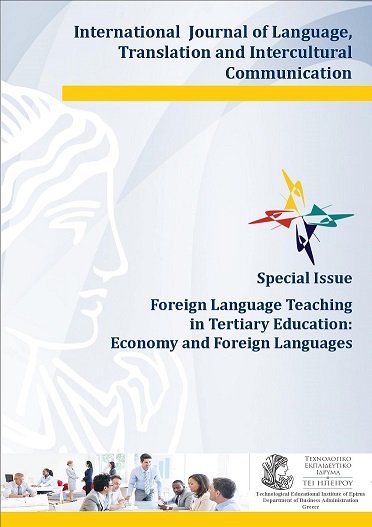Russia’s foreign language market and some innovative aspects of the university curricula

Abstract
Basing herself on the local statistics, the author draws an outline of the current state of things in the Russian foreign language (FL) and translation/interpreting (T/I) job market. In particular, she focuses on the issue of compatibility of the market and business demands for the FL and T/I graduates with the respective degree programmes at the Russian institutions of higher learning. Her findings bring up a patchy picture of the state of things in tertiary education (e.g. the out-of-date curricula, the old-fashioned courses, etc. at some institutions, and the dynamic, progressive and innovative developments at other schools). It is on the latter that she focuses primarily. Her case study is the MBA programme in FL/TI, and Business, which was designed at the RSUH institute for the in-service continuing education.
Article Details
- How to Cite
-
REINHOLD, N. (2016). Russia’s foreign language market and some innovative aspects of the university curricula. International Journal of Language, Translation and Intercultural Communication, 4(1), 33–42. https://doi.org/10.12681/ijltic.10347
- Section
- Articles

This work is licensed under a Creative Commons Attribution-NonCommercial-ShareAlike 4.0 International License.
Copyright Notice
Authors who publish with this journal agree to the following terms:
- Authors retain copyright and grant the journal right of first publication with the work simultaneously licensed under a Creative Commons Attribution License that allows others to share the work with an acknowledgement of the work's authorship and initial publication in this journal.
- Authors are able to enter into separate, additional contractual arrangements for the non-exclusive distribution of the journal's published version of the work (e.g., post it to an institutional repository or publish it in a book), with an acknowledgement of its initial publication in this journal.
- Authors are permitted and encouraged to post their work online (e.g., in institutional repositories or on their website) prior to and during the submission process, as it can lead to productive exchanges, as well as earlier and greater citation of published work (See The Effect of Open Access).


